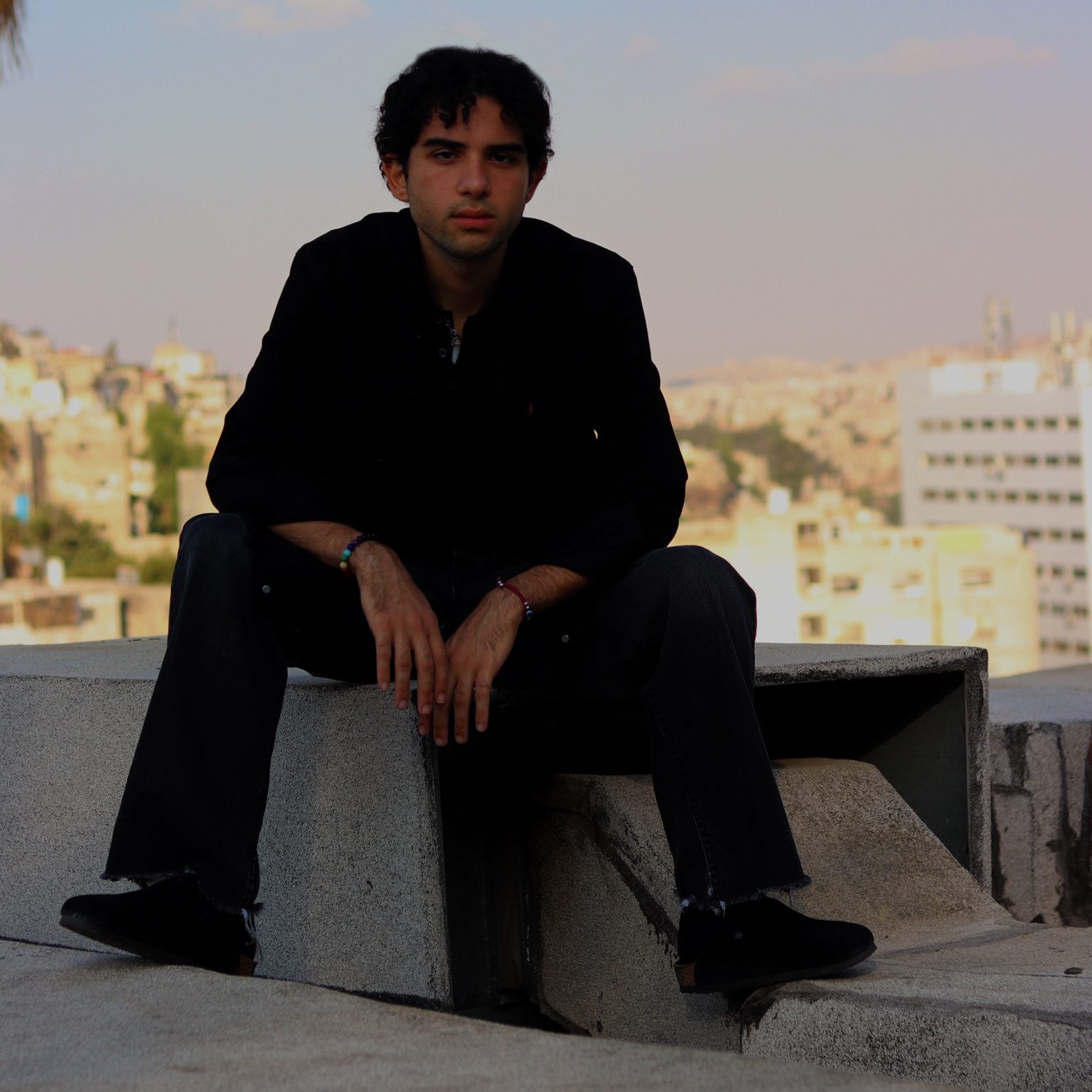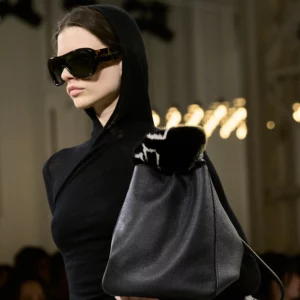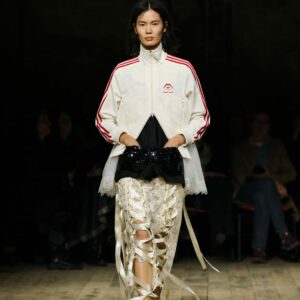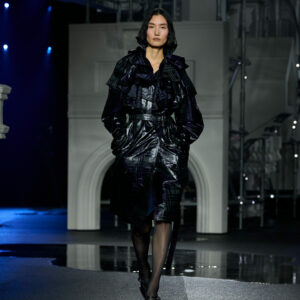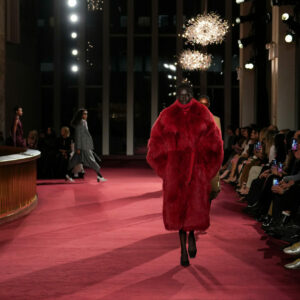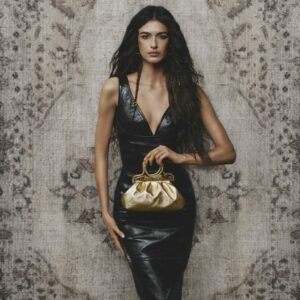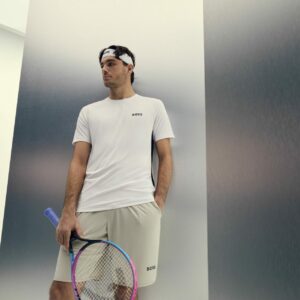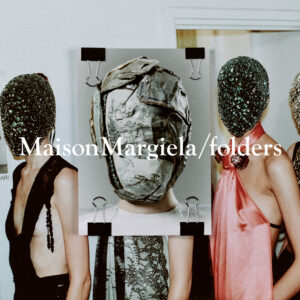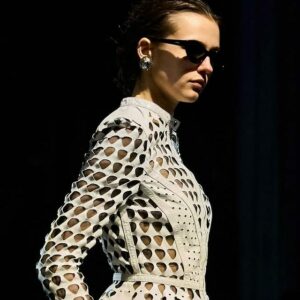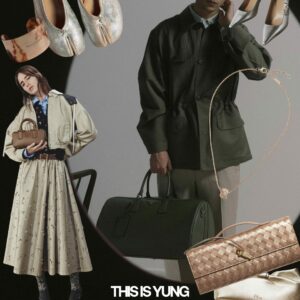If you were to believe the press, Zeid Hijazi is ‘set for greatness’, ‘destined for global success’ and a ‘once-in-a-lifetime talent’. While we can’t help but agree, it’s a good thing that Palestinian-Jordanian designer is also level-headed, calm, and collected, too. With a style that effortlessly fuses social awareness and future optimism, one thing’s for certain: Fashion Trust Arabia’s Debut Talent winner of 2020 is only getting started.
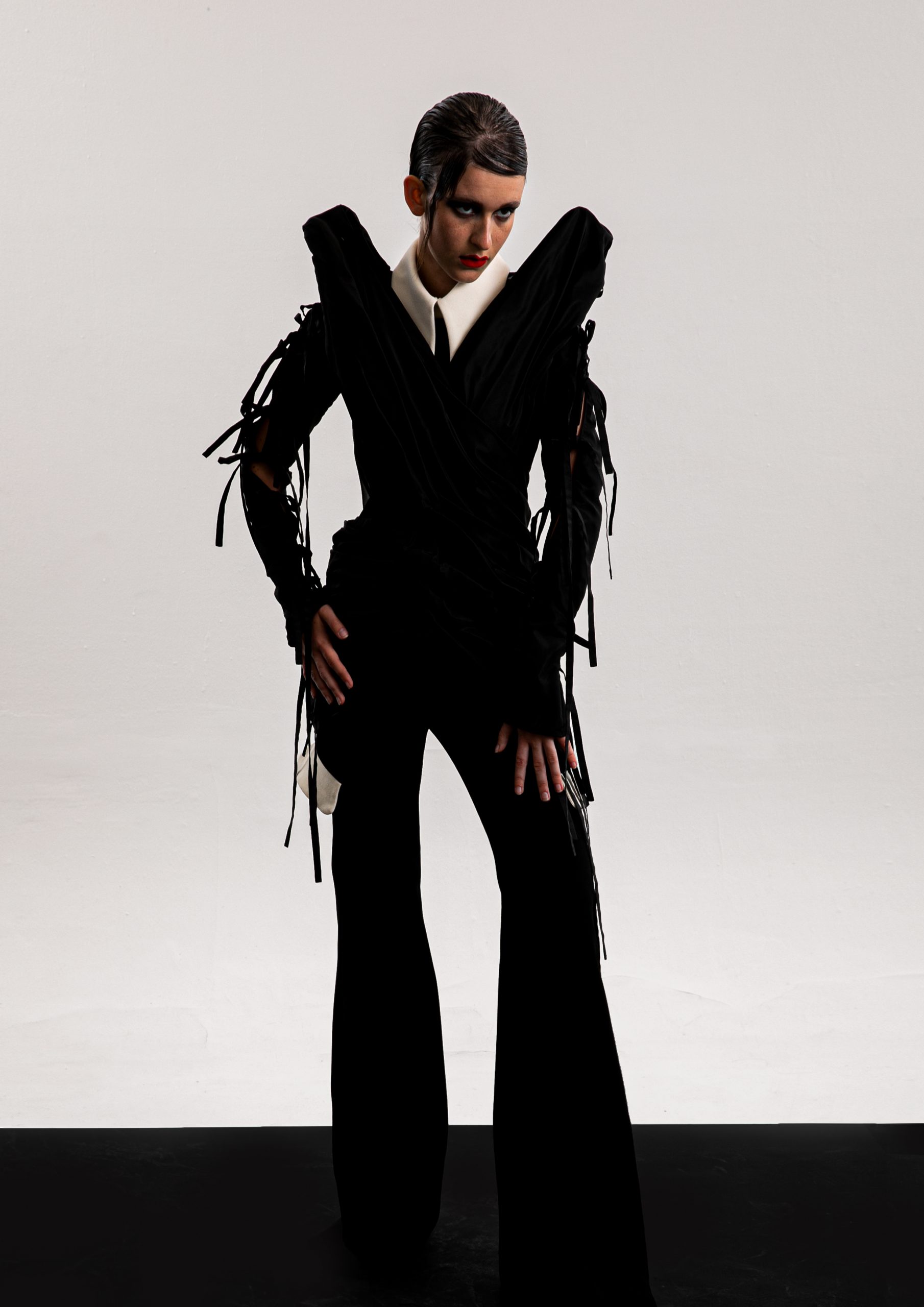
How’s life right now?
I’m back in Amman and the weather is very nice, life is fine!
Where can we find you?
I’m in Amman, Jordan but I live between there and London.
What’s your earliest fashion memory.
Going through couture gowns with my mom and sister for their wedding parties. I still do the same thing now, by the way. The only difference is that I get to design the gowns now.
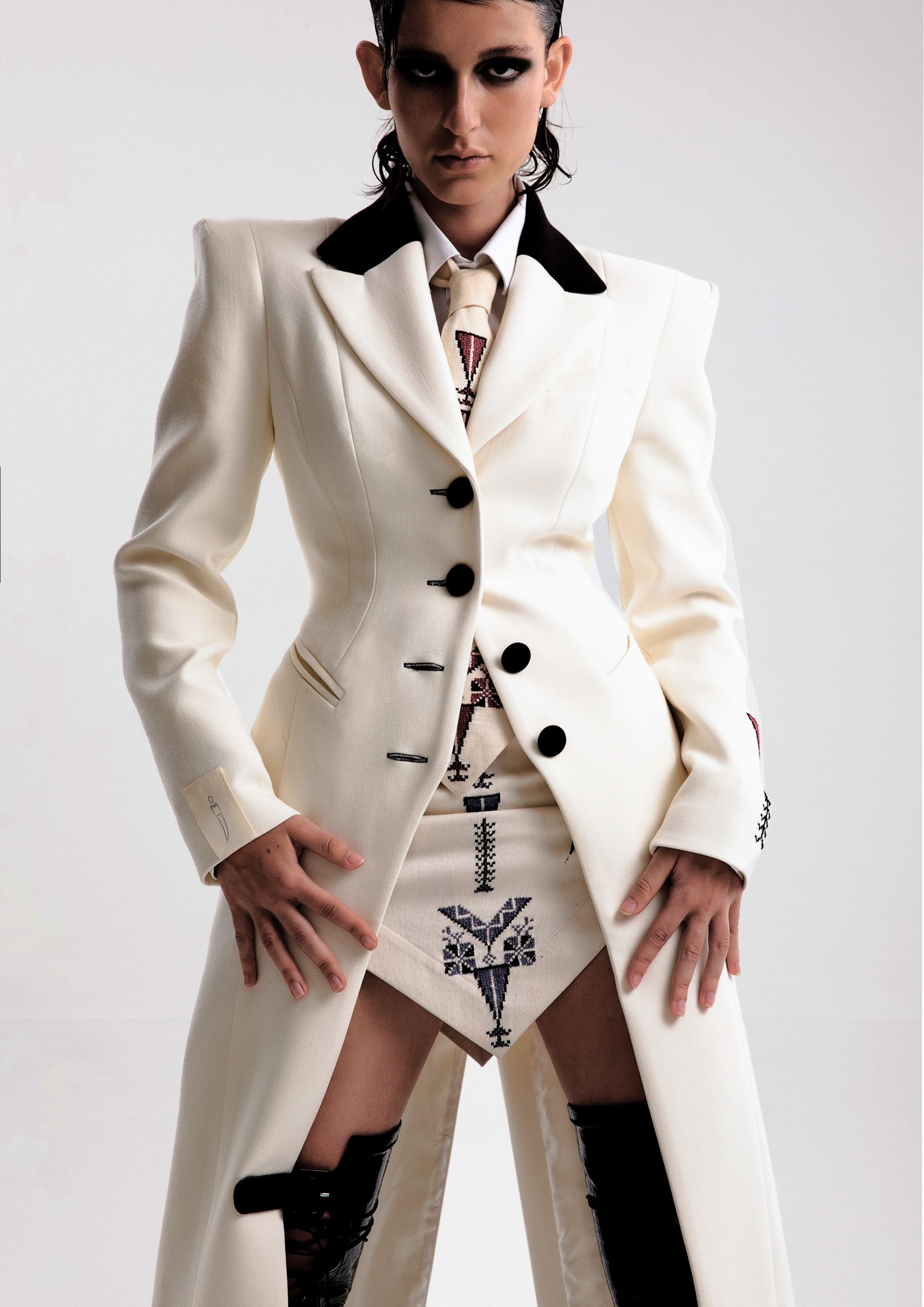
Did your family encourage a career in fashion?
We have this stigma that if you are a male you need to pursue a life in the corporate world or medical field, but when I opened up to my family about wanting to pursue a career in the arts they welcomed my aspirations with open arms.
Describe your work for us in just one word.
Dystopian.
What would you be doing if things hadn’t worked out?
I would still be trying. I’ve never really had a plan B.
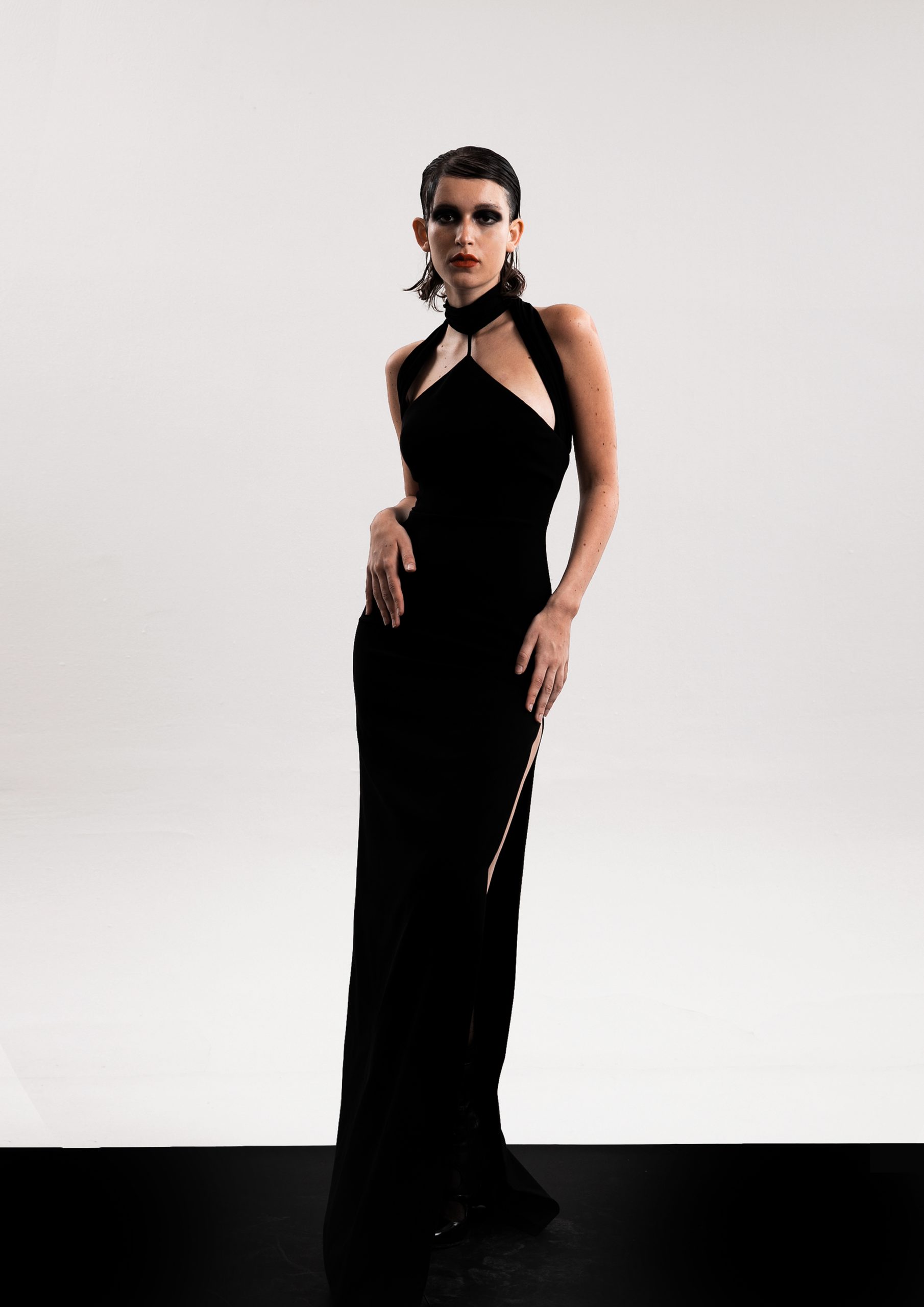
Give us your style inspirations
My family when they lived in Egypt. Elsewhere I would say Martin Margiela, Rick Owens, Hedi Slimane, Tom Ford, and my best friend Cynthia Merhej who is also the founder of Renaissance Renaissance.
You won the Debut Talent award in the 2020 edition of Fashion Trust Arabia. How did that success affect your work?
I got introduced to a lot of people whom I call family now. Before winning the prize I didn’t know what I was doing. I was a lost 22 year old, but I was sitting alongside some of the biggest names in fashion who, by giving me the prize, told me I was doing the right things. As for my work – it didn’t affect it at all.
We’ve seen you described as ‘destined for greatness’. No pressure then
It’s scary. It’s like walking into a movie theatre to watch a horror movie but with so much adrenaline and a box of caramel popcorn!
How does your Palestinian-Jordanian heritage impact your work?
I’ve always asked myself why me? Why did my grandparents make it out and gave us a good life when we could’ve easily been stuck in a war? With my work I try as much as possible to give back. It’s truly rewarding when journalists research my work after they see it. They become educated about the history of stolen land, and so I believe that’s my purpose – to use abstraction as a form of education. Jordan is truly a beautiful country which always calms me after spending most of my time in big cities like London. I need a peaceful mindset to focus on my creative process and I only find that here, in Jordan.
If we demanded you take up another artistic discipline, what would it be?
I think Architecture. In the same way I love to design for the human body, I would love to design for nature, too.
How would you describe your own personal style?
A less serious stripped-down masculine version of what I design. It’s very classic and a bit playful.
Tell us your darkest fashion secret?
I didn’t enjoy Central Saint Martins.
What advice would you give aspiring designers?
I’m still aspiring. But I would say trusting your intuition and letting that ego go helps.
What’s next for you?
Stronger tailoring, sexier gowns and some colour this time.
PHOTOGRAPHY: Aya Nashashibi
